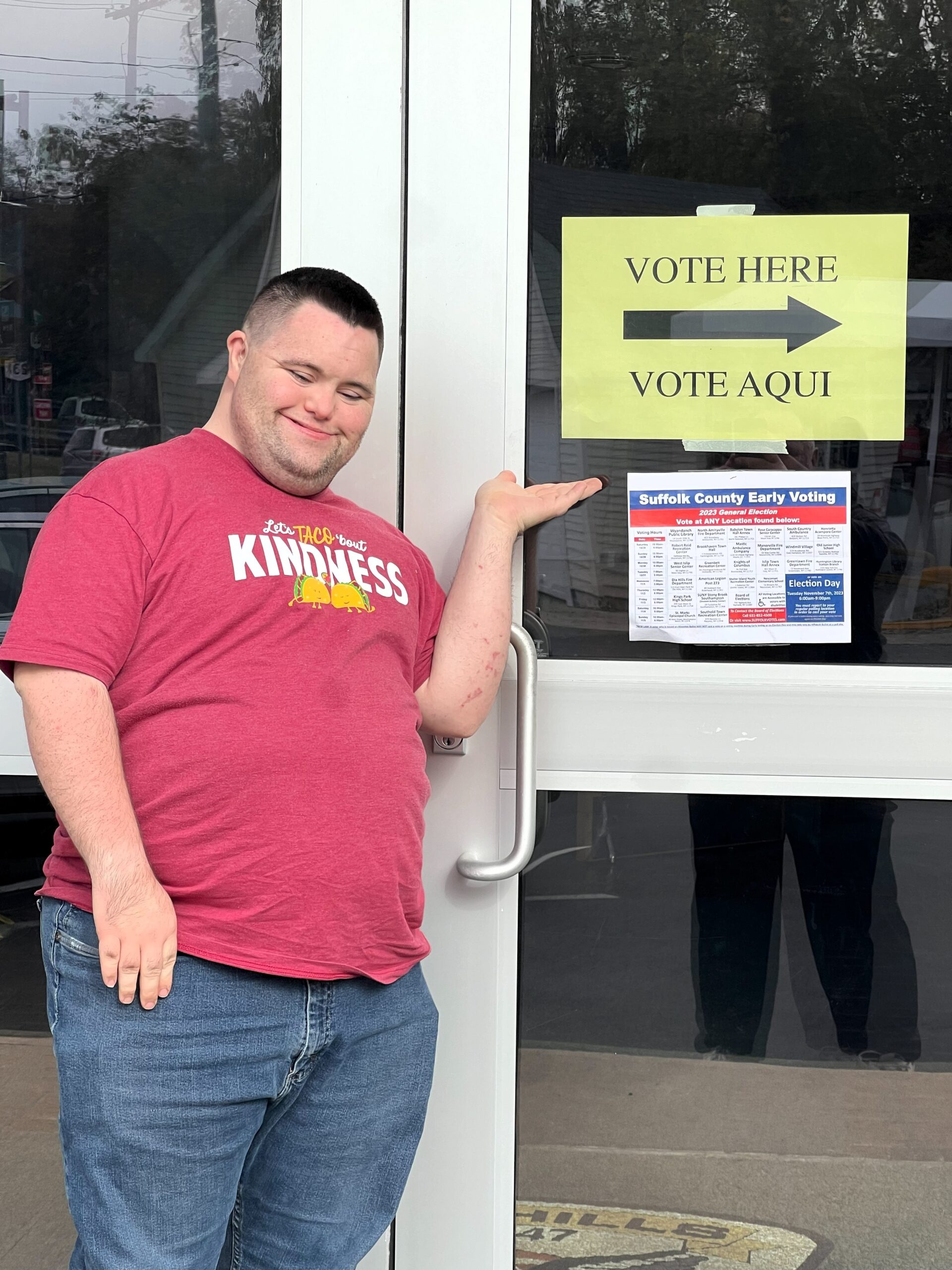By Mark X. Cronin | May 20, 2025
Elections have consequences and those who don’t vote, don’t get a say. But if we exclude people from voting, especially those with differing abilities, then we undermine the foundation of our democracy. To truly reflect the will of the people, we must ensure that every citizen can participate in our elections, fully and equally.
Some still ask, “Can those people really vote?” That question reveals the problem. It assumes that people with intellectual or developmental disabilities aren’t capable of understanding the vote, and therefore, shouldn’t participate. That assumption silences them.
Let me tell you about my son and business partner, John Cronin. John has Down syndrome, and he treats his right to vote with a seriousness that should inspire us all. He never misses an election. And he never casts a ballot without first learning about the candidates and issues on the ballot.
Today, as I watch him review local school board candidates and budget proposals, I’m reminded that accessible voting is more than a legal right, it’s a moral imperative.
Democracy Only Works When Everyone Participates
A democracy only functions when it reflects the voice of all its citizens. Yet, for the estimated 61 million Americans with disabilities, voting barriers (physical, logistical, and attitudinal) persist, even decades after the passage of the Americans with Disabilities Act.
One of the most damaging barriers is a lingering prejudice: the belief that people with intellectual disabilities can’t or shouldn’t vote. According to Self-Advocates Becoming Empowered (SABE), voter turnout among people with disabilities still lags well behind that of the general population. And when people don’t vote, their issues get overlooked. There is a saying: “if you are not at the table, you are on the menu.”
From Disenfranchisement to Empowerment
Historically, people with intellectual disabilities were denied the vote through discriminatory laws. While many of those legal barriers have been removed, the remnants remain: inaccessible processes, lack of information, social stigma.
But here’s the truth: voting is not just about checking a box. For people with differing abilities, it’s about agency, dignity, and the right to be heard. It’s about being part of decisions, not simply being affected by them.
John says it best: “It’s with us, not for us. It’s my life and my decisions.”
What Truly Accessible Elections Look Like
Accessibility is more than a ramp. It means:
- Informational Access: Voter materials in plain language and accessible formats
- Process Support: Allowing assistance when needed—while protecting independence
- Flexible Voting Options: Expanded early voting, mail-in ballots, accessible digital platforms
- Poll Worker Training: Let’s put staff in a position to respectfully support voters with differing abilities
- Transportation Solutions: Because getting to the polls is still a barrier for many
These aren’t just disability accommodations, they’re upgrades to democracy.
The Ripple Effect of Inclusive Voting
When people with differing abilities vote, we all win. Their participation:
- Brings disability issues to the political forefront
- Challenges outdated narratives about capability
- Builds political power for a historically marginalized group
- Encourages civic engagement across other communities
At John’s Crazy Socks, we see this connection firsthand. John’s confidence as a business leader has fueled his advocacy. He’s testified before Congress, spoken at the United Nations, and meets regularly with policymakers. He’s also a Board Member and Ambassador for the National Down Syndrome Society and a member of the CEO Commission for Disability Employment.
A Personal Commitment to Voting
While many only vote in presidential elections, John votes every chance he gets from national to local elections. Today’s ballot? The local school board. A few months ago? The fire district.
His approach is methodical: study the issues, research the candidates, ask questions, plan ahead. Sometimes he asks for help understanding the details, but the final choice is always his. That’s what true accessibility looks like: independence with support.
As John often says, “Voting is how I make my voice heard. And it’s how we make sure they listen to us.”
What We Can All Do
As entrepreneurs, educators, parents, advocates, and neighbors, we all have a role to play:
- Promote voter education designed for people with intellectual disabilities
- Volunteer to monitor and improve accessibility at polling places
- Push for policies that ensure inclusive civic participation
- Speak out against assumptions about who gets to have a voice
- Share and celebrate stories of people with differing abilities participating in democracy
When John walks into his polling place, he’s not just casting a ballot. He’s making a statement: I belong here. My voice matters.
The Power of Example
“Be like John,” I often tell audiences. “Never miss an election. Make your voice heard.”
Our democracy only lives up to its promise when every voice has a chance to shape its future. As we work toward inclusive hiring and entrepreneurship, let’s be just as committed to inclusive voting.
Because valuing diversity means making sure every citizen has access to power. And in a democracy, that power begins—though it doesn’t end—with the vote.
Mark X. Cronin is the co-founder of John’s Crazy Socks and Abilities Rising. He speaks nationally about inclusive business, civic engagement, and unlocking the potential of people with differing abilities.




